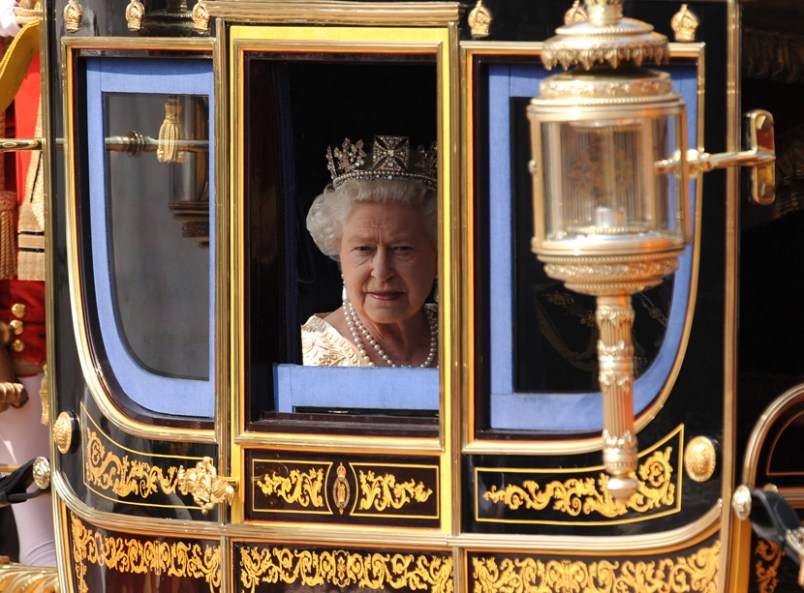LONDON (AP) — Britain’s Queen Elizabeth II was hospitalized Sunday over an apparent stomach infection that has ailed her for days, a rare instance of ill health sidelining the long-reigning monarch. Elizabeth will have to cancel a visit to Rome and other engagements as she recovers, and outside experts said she may have to be rehydrated intravenously.
Buckingham Palace said the 86-year-old queen had experienced symptoms of gastroenteritis and was being examined at London’s King Edward VII Hospital — the first time in a decade that Elizabeth has been hospitalized.
“As a precaution, all official engagements for this week will regrettably be either postponed or cancelled,” the palace said in a statement. Elizabeth’s two-day trip to Rome had been planned to start Wednesday. A spokeswoman said the trip may be “reinstated” at a later date.
The symptoms of gastroenteritis — vomiting and diarrhea — usually pass after one or two days, although they can be more severe in older or otherwise vulnerable people. Dehydration is a common complication.
The illness was first announced Friday, and Elizabeth had to cancel a visit Swansea, Wales, on Saturday to present leeks — a national symbol — to soldiers of the Royal Welsh Regiment in honor of Wales’ national day, St. David’s Day. She instead spent the day trying to recover at Windsor Castle, but appears to have had trouble kicking the bug.
A doctor not involved in the queen’s treatment said that if medical officials determined that she is losing too much fluid, she would be rehydrated intravenously.
“Not everyone can keep up with oral hydration so it is pretty routine to go to hospital and have a drip and wait for the thing to pass and keep yourself hydrated,” said Dr. Christopher Hawkey of the University of Nottingham’s faculty of medicine and health sciences.
Britain’s National Health Service says that the two most common causes of gastroenteritis in adults are food poisoning and the norovirus, a common winter vomiting bug which typically afflicts between 600,000 and 1 million Britons each year. British health guidelines advise that people with the norovirus avoid work for at least two days.
“It’s very infectious and strikes in winter because people are indoors and it spreads more easily,” Hawkey said.
Elizabeth has ruled since 1952 and is Britain’s second-longest serving monarch, beaten only by Queen Victoria in terms of the number of years spent on the throne.
Elizabeth’s husband Prince Philip, 91, has had several hospital stays, but Elizabeth has rarely let sickness get in the way of her still-busy schedule.
About five months ago, she cancelled an engagement due to a bad back. The spokeswoman, who demanded anonymity because palace rules do not let her go on the record, said the last time Elizabeth was hospitalized was in 2003 for a knee operation.
The queen has undertaken a number of engagements over the past week. On Tuesday, she met the new archbishop of Canterbury, Justin Welby, at Buckingham Palace, and on Thursday she presented a host of British Olympians, including track and field star Jessica Ennis, with honors during an investiture ceremony.
Ingrid Seward, the editor of the Britain’s Majesty Magazine, said that the queen “probably agreed to be hospitalized in order to get better quickly.”
“Everybody will want to be wishing her a speedy recovery,” she told Sky News television.
That includes British Prime Minister David Cameron, whose office said he passed on his best wishes to the queen.
___
Online:
Britain’s National Health Service on gastroenteritis: http://www.nhs.uk/conditions/Gastroenteritis/Pages/Introduction.aspx






